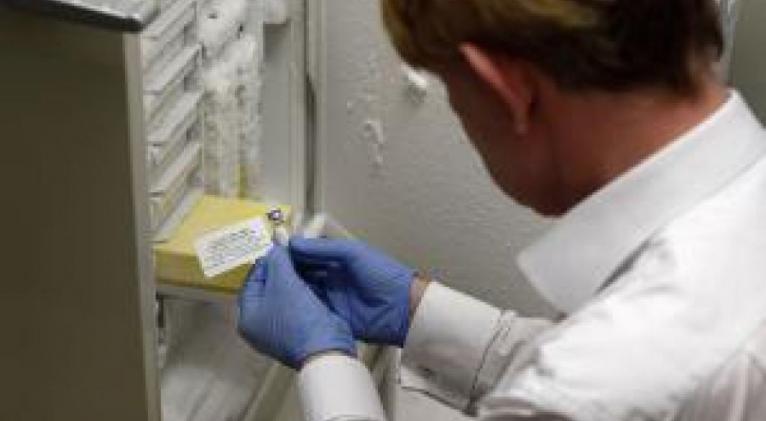Drug trials begin as Ebola plays hide-and-seek
especiales

Trials of two experimental drugs have just started among Ebola patients in Liberia and Guinea, and preparations for a third in Sierra Leone will start next week. However, as the epidemic fluctuates, scientists in some areas are in the unexpected position of potentially not having enough sick people to test the drug on.
The trial in Sierra Leone will involve the first-ever RNA-based drug to be tested against an infection in humans. The drug, made by Canadian firm Tekmira, contains a "short interfering" RNA (siRNA), designed to stop a particular gene from working. Tekmira has developed stable nanoparticles of fats to help administer these siRNAs, and they have been tested against cancer and a protein disorder called amyloidosis in humans. But with US biodefence funding, the company also developed one that blocks a key gene in the Ebola virus, stopping it from replicating.
It has passed small-scale safety tests in people, and intravenous doses starting half an hour after infection saved monkeys that had been infected with lethal levels of Ebola. Tekmira announced on 22 December that it would carry out human trials in West Africa with siRNA specifically matched to the epidemic strain.
Need for speed
Peter Horby of the University of Oxford is leading the trial of a more conventional antiviral, brincidofovir. That began on 1 January in Monrovia, Liberia, previously a hotspot for the epidemic. Now, though, control efforts in the city are working, and he fears that it might be hard to find the 140 patients needed.
"This is good news, but we also have to move fast to test these drugs," says Horby. He is also helping set up the Tekmira trial in Sierra Leone, where the epidemic is now most severe, and will look out for further test sites for brincidofovir there. They will still be needed: despite improvements in some areas the epidemic shows no sign of stopping.
Vaccine trials are also running into delays. Large-scale trials of a vaccine made by drug firm GSK were to start this month, but have been pushed to February, as insurance and consent arrangements are hammered out. Moreover, a trial of a vaccine developed in Canada and now owned by US drug giant Merck is having to repeat its initial safety tests at lower doses, after some volunteers in the first round in November developed joint pain.
Meanwhile, a third vaccine has joined the list. Unlike the others, it requires two different injections. The first, like the GSK vaccine, contains a benign chimp adenovirus that carries an Ebola protein. That is followed by a weakened strain of the live Vaccinia virus, which has been used for decades as a smallpox vaccine, but this time also equipped with an Ebola protein. The idea is to stimulate the two main parts of the immune system, antibodies and T-cells, for longer-lasting immunity.













Add new comment